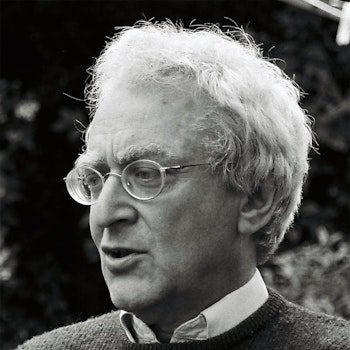G. A. Cohen was one of the most gifted, influential, and progressive voices in contemporary political philosophy. At the time of his death in 2009, he had plans to bring together a number of his most significant papers. This is the first of three volumes to realize those plans. Drawing on three decades of work, it contains previously uncollected articles that have shaped many of the central debates in political philosophy, as well as papers published here for the first time. In these pieces, Cohen asks what egalitarians have most reason to equalize, he considers the relationship between freedom and property, and he reflects upon ideal theory and political practice.
Included here are classic essays such as “Equality of What?” and “Capitalism, Freedom, and the Proletariat,” along with more recent contributions such as “Fairness and Legitimacy in Justice,” “Freedom and Money,” and the previously unpublished “How to Do Political Philosophy.” On ample display throughout are the clarity, rigor, conviction, and wit for which Cohen was renowned. Together, these essays demonstrate how his work provides a powerful account of liberty and equality to the left of Ronald Dworkin, John Rawls, Amartya Sen, and Isaiah Berlin.
G. A. Cohen (1941-2009) was the Chichele Professor of Social and Political Theory at All Souls College, University of Oxford, from 1985 to 2008. At the time of his death, he held the Quain Chair in Jurisprudence at University College London. His books include Karl Marx's Theory of History and Why Not Socialism? (both Princeton). Michael Otsuka is professor of philosophy at University College London.
"While alerting his readers to the difficulties faced by philosophers, Cohen is a source of guidance to those seeking to find their way in the field of political philosophy."—Richard Mullender, Political Studies Review
"Cohen wrote with incredible clarity, analyzed with great insight, and argued with the utmost rigor. He did all this while addressing fundamental problems of political philosophy. It will thus be a joy for those interested in these topics to read, or reread, these essays."—Peter Vallentyne, Notre Dame Philosophical Reviews
"From start to finish, a permanent invitation to fight lazy thinking and sloppy writing and a masterly demonstration of how to do it: straight to the difficult core of each issue; quite often with humor, most of the time with an explicit political engagement, always with impeccable intellectual honesty. The irreplaceable Jerry Cohen at his best."—Philippe van Parijs, Université catholique de Louvain
"G. A. Cohen argues brilliantly for two important and unfashionable ideas: that accidental inequality is unjust and that poverty limits freedom. Cohen's essays reveal a wonderful mind in search of the fundamental truths about justice. Here you have the mix of clarity and depth that marks philosophy at its apex."—Joshua Cohen, Stanford University
"This will be one of the most important books in political philosophy published this decade, and compulsory reading for anyone working on distributive justice, including philosophers, legal and political theorists, and philosophically inclined economists."—Andrew Williams, ICREA and Pompeu Fabra University
"G. A. Cohen's landmark essays on luck egalitarianism, freedom, and property have become standard points of reference. These highly acclaimed pieces have been scattered over a wide range of journals and edited volumes, so having them now in a single volume is an enormous boon. Very valuably, the book also includes the unpublished essay 'How to Do Political Philosophy,' in which Cohen reflects on the way he sought to address the issues in these essays."—Hillel Steiner, professor emeritus, University of Manchester


